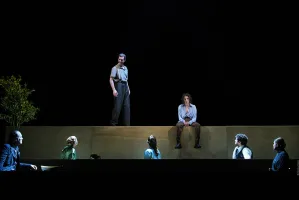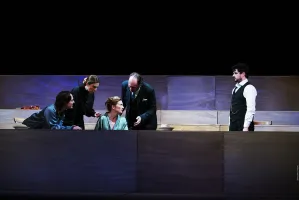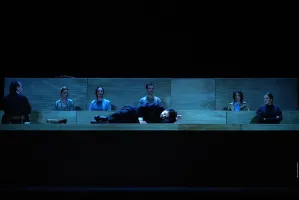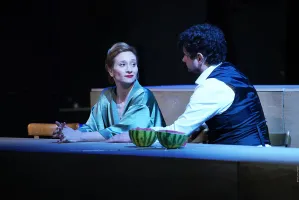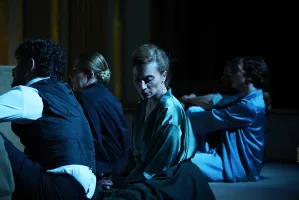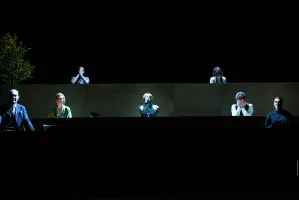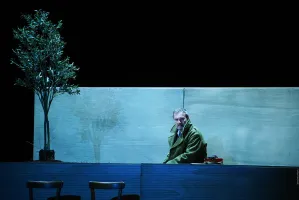Fathers and forefathers
dramatized by Kata Gyarmati, novel by Slobodan Selenić
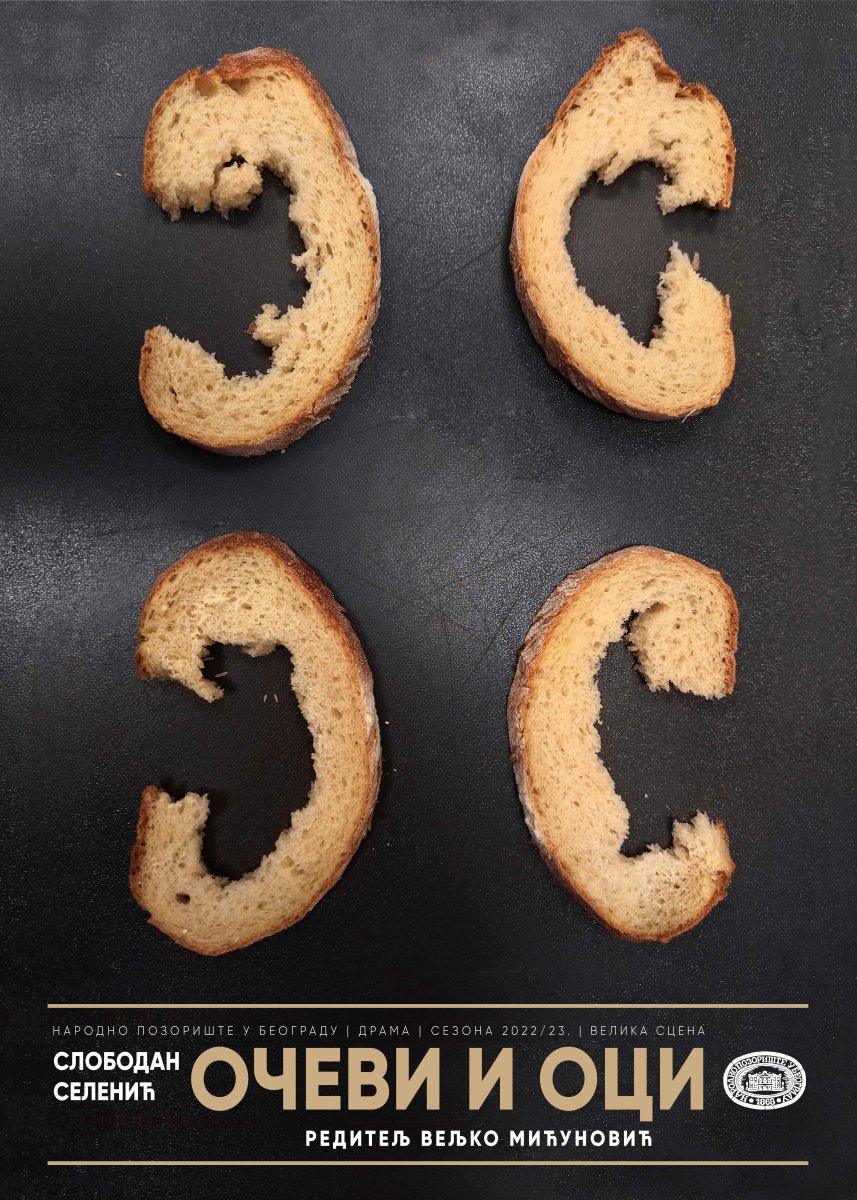
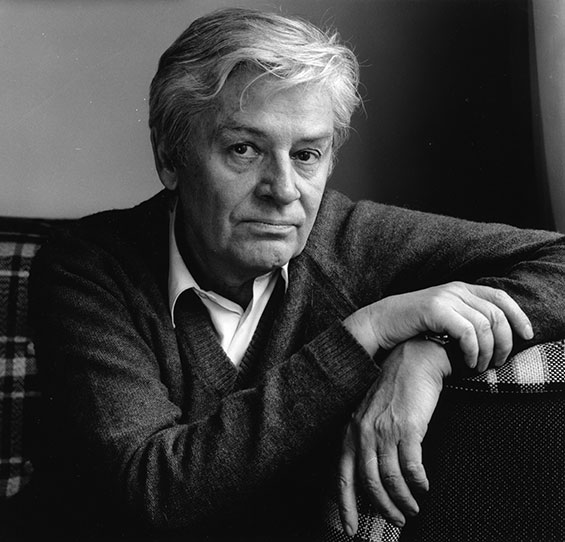 Slobodan Selenić was born in 1933 in Pakrac.
Slobodan Selenić was born in 1933 in Pakrac.
He wrote theatre reviews and was a full professor at the Faculty of Dramatic Arts in Belgrade.
He wrote the following novels: "The Memoirs of Pera the Cripple" (1968, City of Belgrade October Award for Literature), "The Friends" (1980, NIN's Award, Socialist Republic of Serbia Library Award for the Most Popular Book in 1981), "Heads/Tails” (1982) , "Fathers and Forefathers" (1985), "Timor Mortis" (1989, Yugoslav Critics Award "Meša Selimović"), "Premeditated Murder" (1993, National Library of Serbia Award for the Most Popular Book in 1994 and 1995).
Based on the novel "Premeditated Murder" he wrote a screenplay for a film of the same title directed by Gorčin Stojanović (1995).
His novel "The Malayan Madness" (2003) and theatre reviews "The Age of Drama" (2005, edited by Feliks Pašić), which he had been publishing from 1956 to 1978, were published posthumously.
He wrote three plays: “Kosančićev venac 7” (premiered in March 1982 at Atelje 212 theatre), "Humiliating the Nation in Two Parts" (premiered in December 1987 at the Yugoslav Drama Theatre, Sterija's Award for Best Text in 1988), "Prince Paul" (premiered in May 1991 at the Yugoslav Drama Theatre).
In the field of dramatic theory and criticism, he published the following books: "Engagement in Dramatic Form" (1965 and 2003), "Trends in 20th Century Drama" (1971 and 2002), and the anthologies "Avant Garde Drama" (1964), and "Anthology of Contemporary Serbian Drama" (1977).
The book of conversations and political essays "Stepping into Reality" was published in 1995 and 2003.
He died in 1995 in Belgrade.
A Word from the Director:
Our fathers and forefathers - our spiritual, intellectual, ideological heritage - what we inevitably live with to this day. Or we are forced to live with. Making it impossible to move away from them, and for the sake of constant digging up and re-digging the past, fathers and forefathers live around us constantly - they remind, persecute, supervise and admonish us.
From the shards of Stevan Medaković's memory, our torn beings, endangered intimacy, family discords and alienation are staring at us. There is also a fundamental misunderstanding of diversity, be it at the basic level regarding nationality or purely ideological.
While, at the same time, our internal exiles, anguishing captivity and the feeling of guilt that we carry as a burden to this day become so obvious.

